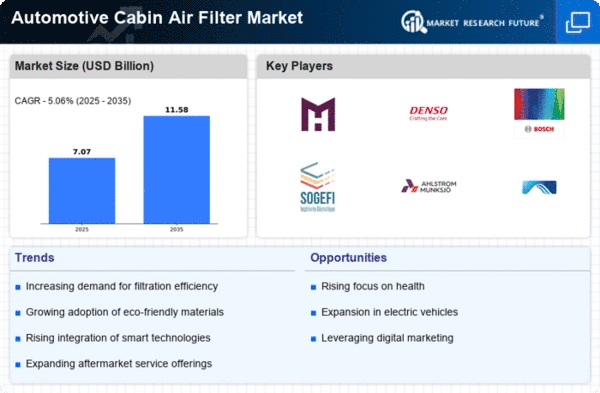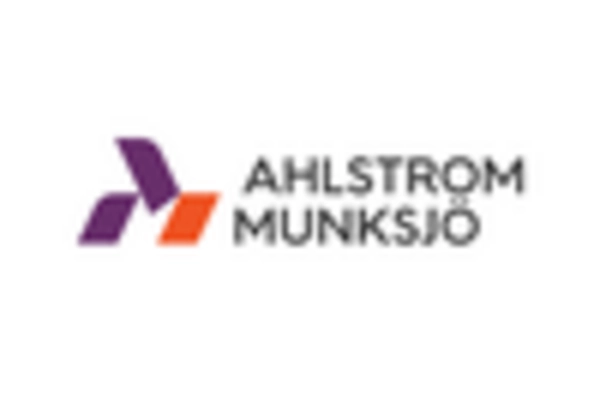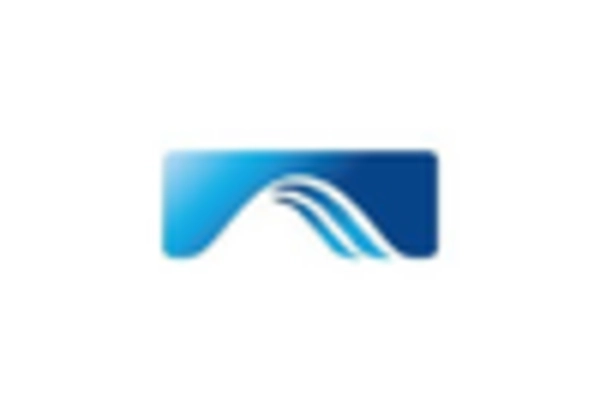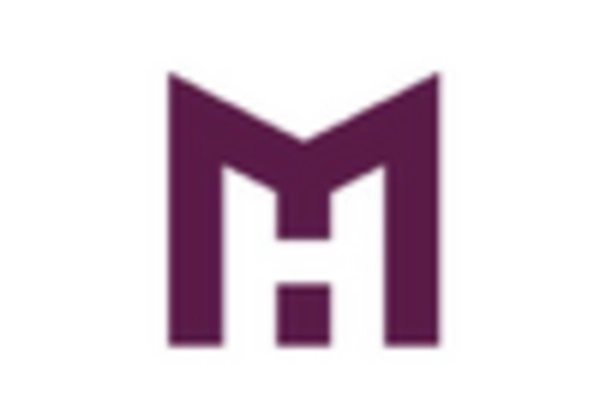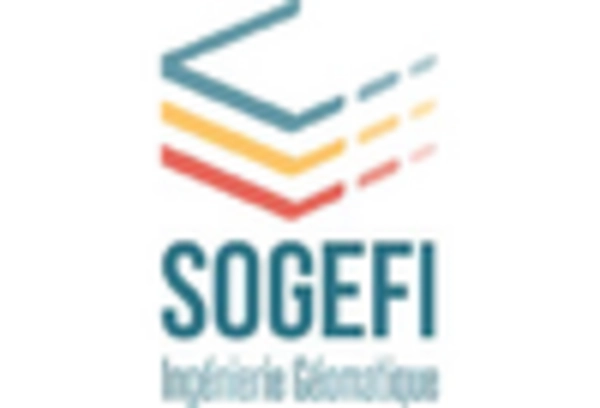The Automotive Cabin Air Filter Market is currently characterized by a dynamic competitive landscape, driven by increasing consumer awareness regarding air quality and stringent regulations on vehicle emissions. Key players such as Mann+Hummel (DE), Denso (JP), and Bosch (DE) are strategically positioned to leverage innovation and sustainability in their operations. Mann+Hummel (DE) focuses on enhancing filtration technologies, while Denso (JP) emphasizes the integration of smart technologies into their products. Bosch (DE) is actively pursuing partnerships to expand its product offerings, thereby shaping a competitive environment that prioritizes technological advancement and environmental responsibility.In terms of business tactics, companies are increasingly localizing manufacturing to reduce lead times and optimize supply chains. The market appears moderately fragmented, with several players vying for market share. This fragmentation allows for a diverse range of products and innovations, although it also intensifies competition among key players. The collective influence of these companies is significant, as they drive trends in product development and market expansion.
In November Denso (JP) announced a partnership with a leading technology firm to develop advanced air filtration systems that utilize AI for real-time monitoring of air quality within vehicles. This strategic move is likely to enhance Denso's competitive edge by integrating cutting-edge technology into their product line, thereby addressing the growing consumer demand for smart automotive solutions. The collaboration may also facilitate the development of more efficient filtration systems, aligning with sustainability goals.
In October Mann+Hummel (DE) launched a new line of eco-friendly cabin air filters made from recycled materials. This initiative not only reflects the company's commitment to sustainability but also positions it favorably in a market increasingly driven by environmental considerations. The introduction of these products could potentially attract environmentally conscious consumers, thereby expanding Mann+Hummel's market share.
In September Bosch (DE) expanded its manufacturing capabilities in Eastern Europe, aiming to enhance its production efficiency and reduce costs. This strategic expansion is indicative of Bosch's focus on optimizing its supply chain and responding to the growing demand for high-quality cabin air filters. By increasing local production, Bosch may improve its responsiveness to market changes and customer needs, further solidifying its position in the market.
As of December the Automotive Cabin Air Filter Market is witnessing trends such as digitalization, sustainability, and AI integration, which are reshaping competitive dynamics. Strategic alliances among key players are becoming increasingly common, fostering innovation and enhancing product offerings. The competitive differentiation is likely to evolve from traditional price-based competition to a focus on technological innovation, reliability in supply chains, and sustainable practices. This shift suggests that companies that prioritize these aspects may gain a significant advantage in the market.


